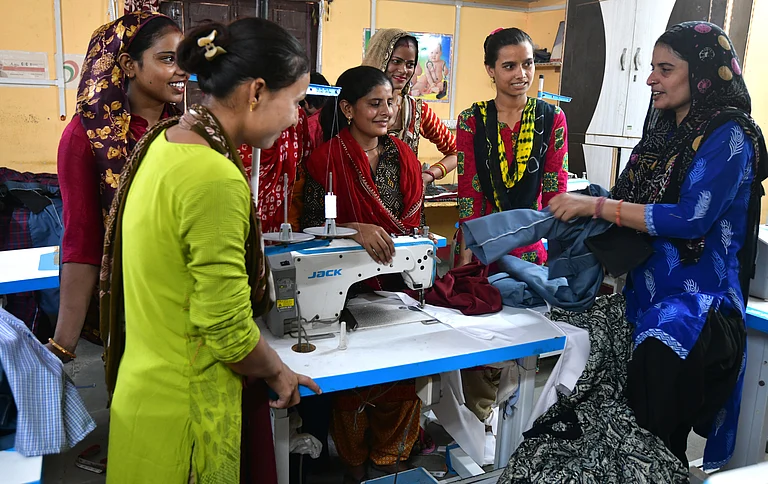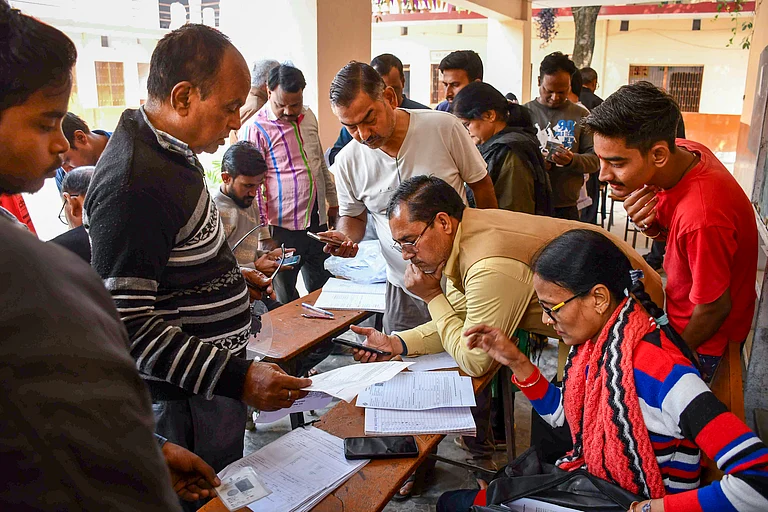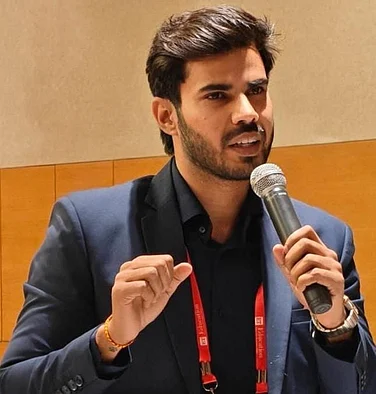In recent years, women voters have emerged as a powerful force in shaping Indian elections. Once considered passive participants, they are now active decision-makers, significantly influencing political campaigns. Politechnica, founded by Chirag Choudhary and Ishan Rajput, has played a pivotal role in this shift by crafting strategies that resonate with women’s needs and aspirations. The 2024 Maharashtra Vidhan Sabha elections serve as a prime example, where women-centric policies and targeted outreach became crucial to electoral success.
The Growing Influence of Women Voters
With 46.6 million registered women voters in Maharashtra alone, their influence in the 2024 election was undeniable. Across both urban and rural constituencies, women voters demanded solutions to pressing issues such as safety, healthcare, job creation, and education. This growing engagement is reflected in the voter turnout figures, where women are increasingly closing the gap with male voters and, in some cases, surpassing them.
In Himachal Pradesh, Politechnica's campaign strategy achieved a historic milestone by securing a record voter turnout, with more women voting than men for the first time in the state's Vidhan Sabha history. This success underscored the rising significance of women as key decision-makers in India's political landscape.
Empowering Women Beyond Election Freebies
What was once viewed as "revdi" or election freebies is now being reframed as tools of empowerment for women. Schemes like the Ladki Bahina Yojana in Maharashtra and the Ladli Behna Yojana in Madhya Pradesh go beyond direct cash transfers, representing a broader shift in policy priorities that focus on women’s needs. While these programs have garnered praise, their impact varies across regions. In rural Maharashtra, women appreciated the ₹1,500 monthly aid, while urban voters, grappling with rising inflation, called for more systemic solutions rather than one-time assistance. This reflects the complexities of policy impact, with outcomes differing based on demographic and regional factors.
Addressing the Urban-Rural Divide
The needs of women vary significantly between urban and rural areas. Urban women tend to prioritize issues such as air pollution, property taxes, and public transportation, while rural women focus more on water access, healthcare, and education for their children. Politechnica’s campaigns have been adept at addressing these divergent needs, helping candidates tailor their messages accordingly.
For example, in constituencies struggling with poor public transport infrastructure, Politechnica’s recommendations to candidates included promising tangible improvements like enhanced bus stands and the installation of solar streetlights to improve safety. These measures resonated with women, who have often borne the brunt of inadequate infrastructure.
Innovative Schemes to Empower Women
In 2022, Politechnica further advanced this trend by designing campaigns that tackled women’s key concerns at a deeper level. The firm’s focus on actionable solutions drove transformative change through initiatives such as:
Education for Children: Advocating for improved school infrastructure and financial aid to ensure that every child, particularly girls, receives quality education.
Youth Upskilling Programs: Providing market-ready skills to unemployed youth, alleviating household anxieties and empowering families.
Solar Street Lamps for Safety: Enhancing public space safety with sustainable lighting solutions in both rural and urban areas.
Mobile Ambulances: Improving healthcare access by deploying mobile units, especially in remote areas where the nearest hospital is over 65 km away.
Grassroots Outreach and Digital Engagement
Politechnica’s campaigns employed grassroots networks, self-help groups (SHGs), and local influencers to amplify their messaging. In rural areas, door-to-door campaigns addressing issues such as maternal health and water accessibility struck a chord, while social media outreach targeted young, educated women voters in urban regions through platforms like Instagram and WhatsApp.
Politechnica’s Expanding Influence Across States
Politechnica has built a strong reputation through its impactful campaigns in several states, including Maharashtra, Himachal Pradesh, and Chhattisgarh. By understanding local demographics and tailoring strategies to meet regional needs, the firm has become a trusted partner for political parties at both national and regional levels. Having worked with several Ministries, Chief Ministers, and political figures, Politechnica is now expanding its efforts into southern and northern India. Upcoming projects include the Municipal Corporation elections in Maharashtra, the Delhi Vidhan Sabha elections, and the Bihar state elections scheduled for 2025.
Commitment to Accountability and Long-Term Impact
Politechnica adheres to a philosophy of impact-driven politics, which prioritizes long-term solutions over short-term fixes. This approach not only yields the highest returns for political campaigns but also serves the broader public good. By focusing on addressing women’s concerns, Politechnica continues to design campaigns that foster meaningful, lasting change in Indian politics.
Chirag Choudhary, Co-Founder of Politechnica, emphasized the firm’s commitment to empowering women, stating, “Empowering women is the cornerstone of meaningful societal change. When you uplift a woman, you strengthen a family; when you empower families, you transform villages; and when villages thrive, the nation prospers.”
Ishan Rajput, Co-Founder of Politechnica, highlighted the importance of women in driving electoral change, saying, “Women are no longer passive participants in the democratic process. They are shaping the future of our politics, demanding solutions that address their real concerns and aspirations. The time for women to be heard and represented is now.”


























